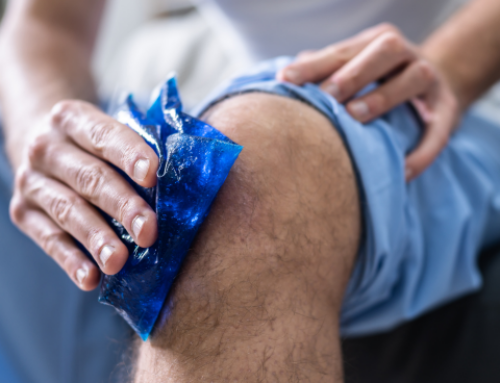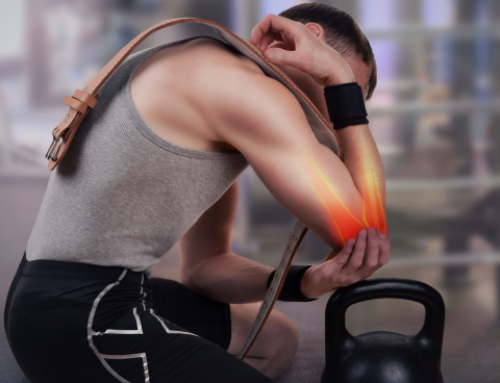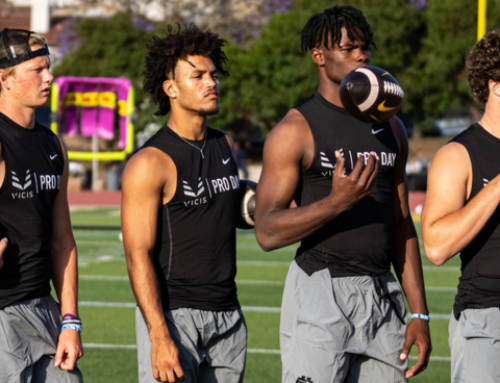Mental Toughness in the Face of Injury
Last August, Arizona Cardinals safety Adrian Wilson tore a tendon in his right bicep making a routine tackle during a team scrimmage. “I was coming down to support a run play,” says Wilson, “and I barely hit [RB] Beanie [Wells]. My arm kind of went numb a little bit.”
The freak accident should have sidelined Wilson for the year, but amazingly, after sitting out the rest of the preseason, he didn’t miss a single regular season game. In fact, he played more snaps on defense than any other player in 2011—1,134, to be exact.
Of course, Wilson worked extremely closely with the Cardinals medical staff to make sure he wasn’t putting himself at further risk. Any athlete with an injury should be sure to listen to his or her doctor’s advice. But if you’re going to be out there, be careful and learn from Wilson’s experience.
Listen to the Medical Staff
This goes without saying, but we’re saying it anyway: follow your doctor’s advice. “You definitely have to listen to your medical staff, that’s very important,” says Wilson. “At the same time, the medical staff has to know the player.” If you’re out of shape, inattentive to detail and not eating well, it’s unlikely you will have faith in your body’s ability to bounce back from an injury. “In order for the medical staff to have confidence in you, you have to be willing to put in the work in the off-season,” Wilson adds.
Start Healing Right Away
Rehab is a slow and steady process, but the sooner you can begin, the better off you’ll be. Wilson was able to start rehab the day after his injury. “There was no pain and hardly any swelling,” he says. Wilson didn’t want to lose the strength he had gained over the off-season, and he wanted to work muscle groups adjacent to the torn tendon. “As far as my forearm, wrist and triceps, all those things around [the injury] were super strong,” he says; and that helped him progress faster in his rehab.
Eventually, the injury scarred over. “They kept telling me you can’t hurt it worse than you’ve already hurt it,” he says. “They kept drilling that into my head.” That advice allowed Wilson to return to the field without a bulky brace, which improved his confidence.
Be Active in Your Recovery
Getting hurt isn’t an excuse to lie around and stop training, both mentally and physically. With his doctors’ approval, soon after hurting his arm Wilson started lifting regularly, although he did lower the weight. He says, “To still be able to do those movements gave me confidence that I could still go out there and play. That’s really what pushed me through. I put in a lot of work. To be able to fall back on that and know everything was going to be okay, that helped me out huge.”
Wilson was trying to catch up mentally, as well. “We were installing a new defense, we had a new defensive coordinator, and I was missing reps on the field,” he says. “As soon as you line up physically, it’s different. It’s not the same thing.” Looking for advantages on the field, he studied a lot of film. “I’m breaking down how other players are playing, and how they’re tackling, and I’m putting myself in their position and saying, ‘Okay, if I get put in that position, how am I going to tackle this guy?’ These are the things that are going through my mind.'”
Don’t Be a Hero
You won’t help your team on the field if you’re seriously injured. Make sure you’re not in over your head, and if the doctors tell you not to play, don’t play. “Going out and trying to prove that you’re a tough guy can hurt you in the long run, if you’re not really a tough guy,” says Wilson. “You have to know your body.”
RECOMMENDED FOR YOU
Mental Toughness in the Face of Injury
Last August, Arizona Cardinals safety Adrian Wilson tore a tendon in his right bicep making a routine tackle during a team scrimmage. “I was coming down to support a run play,” says Wilson, “and I barely hit [RB] Beanie [Wells]. My arm kind of went numb a little bit.”
The freak accident should have sidelined Wilson for the year, but amazingly, after sitting out the rest of the preseason, he didn’t miss a single regular season game. In fact, he played more snaps on defense than any other player in 2011—1,134, to be exact.
Of course, Wilson worked extremely closely with the Cardinals medical staff to make sure he wasn’t putting himself at further risk. Any athlete with an injury should be sure to listen to his or her doctor’s advice. But if you’re going to be out there, be careful and learn from Wilson’s experience.
Listen to the Medical Staff
This goes without saying, but we’re saying it anyway: follow your doctor’s advice. “You definitely have to listen to your medical staff, that’s very important,” says Wilson. “At the same time, the medical staff has to know the player.” If you’re out of shape, inattentive to detail and not eating well, it’s unlikely you will have faith in your body’s ability to bounce back from an injury. “In order for the medical staff to have confidence in you, you have to be willing to put in the work in the off-season,” Wilson adds.
Start Healing Right Away
Rehab is a slow and steady process, but the sooner you can begin, the better off you’ll be. Wilson was able to start rehab the day after his injury. “There was no pain and hardly any swelling,” he says. Wilson didn’t want to lose the strength he had gained over the off-season, and he wanted to work muscle groups adjacent to the torn tendon. “As far as my forearm, wrist and triceps, all those things around [the injury] were super strong,” he says; and that helped him progress faster in his rehab.
Eventually, the injury scarred over. “They kept telling me you can’t hurt it worse than you’ve already hurt it,” he says. “They kept drilling that into my head.” That advice allowed Wilson to return to the field without a bulky brace, which improved his confidence.
Be Active in Your Recovery
Getting hurt isn’t an excuse to lie around and stop training, both mentally and physically. With his doctors’ approval, soon after hurting his arm Wilson started lifting regularly, although he did lower the weight. He says, “To still be able to do those movements gave me confidence that I could still go out there and play. That’s really what pushed me through. I put in a lot of work. To be able to fall back on that and know everything was going to be okay, that helped me out huge.”
Wilson was trying to catch up mentally, as well. “We were installing a new defense, we had a new defensive coordinator, and I was missing reps on the field,” he says. “As soon as you line up physically, it’s different. It’s not the same thing.” Looking for advantages on the field, he studied a lot of film. “I’m breaking down how other players are playing, and how they’re tackling, and I’m putting myself in their position and saying, ‘Okay, if I get put in that position, how am I going to tackle this guy?’ These are the things that are going through my mind.'”
Don’t Be a Hero
You won’t help your team on the field if you’re seriously injured. Make sure you’re not in over your head, and if the doctors tell you not to play, don’t play. “Going out and trying to prove that you’re a tough guy can hurt you in the long run, if you’re not really a tough guy,” says Wilson. “You have to know your body.”










